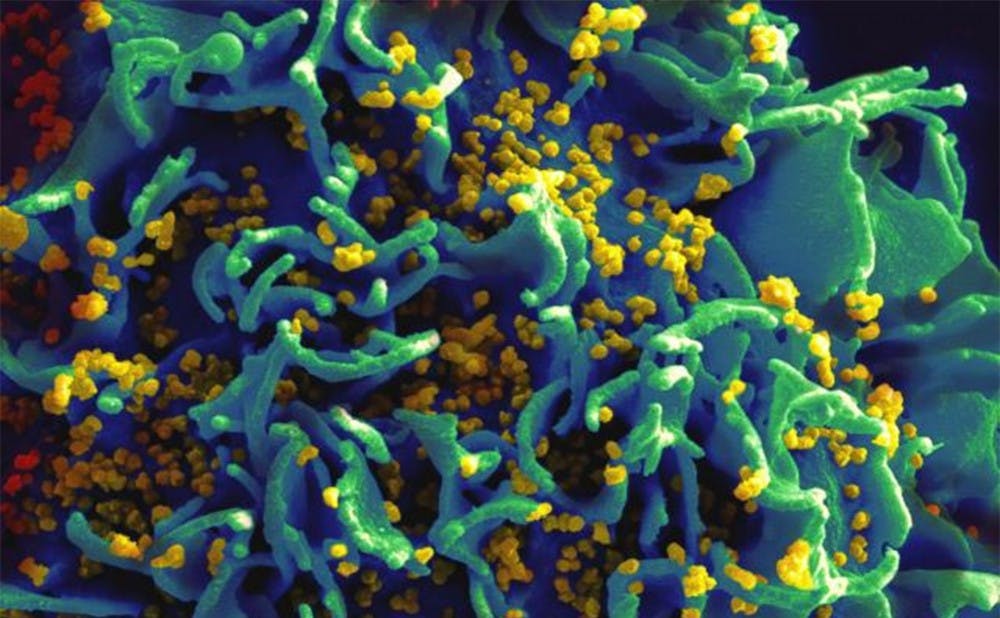Duke researchers have discovered an antibody that could help develop an HIV vaccine.
In a study published March 3, a group of scientists from the Duke Human Vaccine Institute described the findings of their ongoing investigation of HIV. The researchers—led by Dr. Barton Haynes, director of the DHVI and Frederic M. Hanes professor of medicine, professor of immunology and research professor of global health—identified an antibody that has the ability to neutralize HIV, providing a possible stepping stone for work in developing a vaccine.
“One of the most spectacular possibilities that comes out of this kind of work is that we actually get antibodies which themselves are reagents, are drugs, are molecules that we can grow up and use as drugs to prevent disease by infusing it into people,” Haynes said.
The findings came about partly through the study of a single HIV patient who had been diagnosed very early in the virus’ infection cycle. Haynes and approximately 30 other researchers took trips to Africa for 11 years in order to study the effects of different antibodies on HIV. On one trip, the researchers found a patient who exhibited “extremely broad neutralizing antibodies,” Haynes explained. After discovering this, they were able to isolate that particular antibody.
“Now that we know what happened and why it happened, we now know what we need to recreate for the vaccine,” Haynes said.
Currently, creating a vaccine that can act effectively against HIV is difficult because the virus can mutate rapidly once inside the human body.
The newly discovered antibody, however, has the ability to imitate CD4 cells, which are also called T-helper cells and are main components of the immune system that are directly targeted by HIV. Haynes explained that the antibody can protect the immune system from malignant viruses by preventing them from attaching to cells.
“This antibody has the same shape as the receptor CD4, and it slides into the piece of the virus that normally the CD4 receptor on our cells would fit into as we’re being infected and blocks that infection event,” he said.
A number of methods were used to extract the antibody from the patient's cells, including a system designed by the study's co-author Dr. Mattia Bonsignori, assistant professor of medicine and member of the DHVI. The system he developed used robotic screening to discover four rare antibodies located in the 30,000 cells that were tested.
“It’s a lovely way of picking a needle out of a haystack and finding antibodies that are very, very important,” Haynes noted.
He added that the next step toward creating a vaccine is conducting trials that incorporate the new antibody. He said that his team plans to test the antibodies in mice that have been modified to have elements of the human immune system.
Get The Chronicle straight to your inbox
Signup for our weekly newsletter. Cancel at any time.

